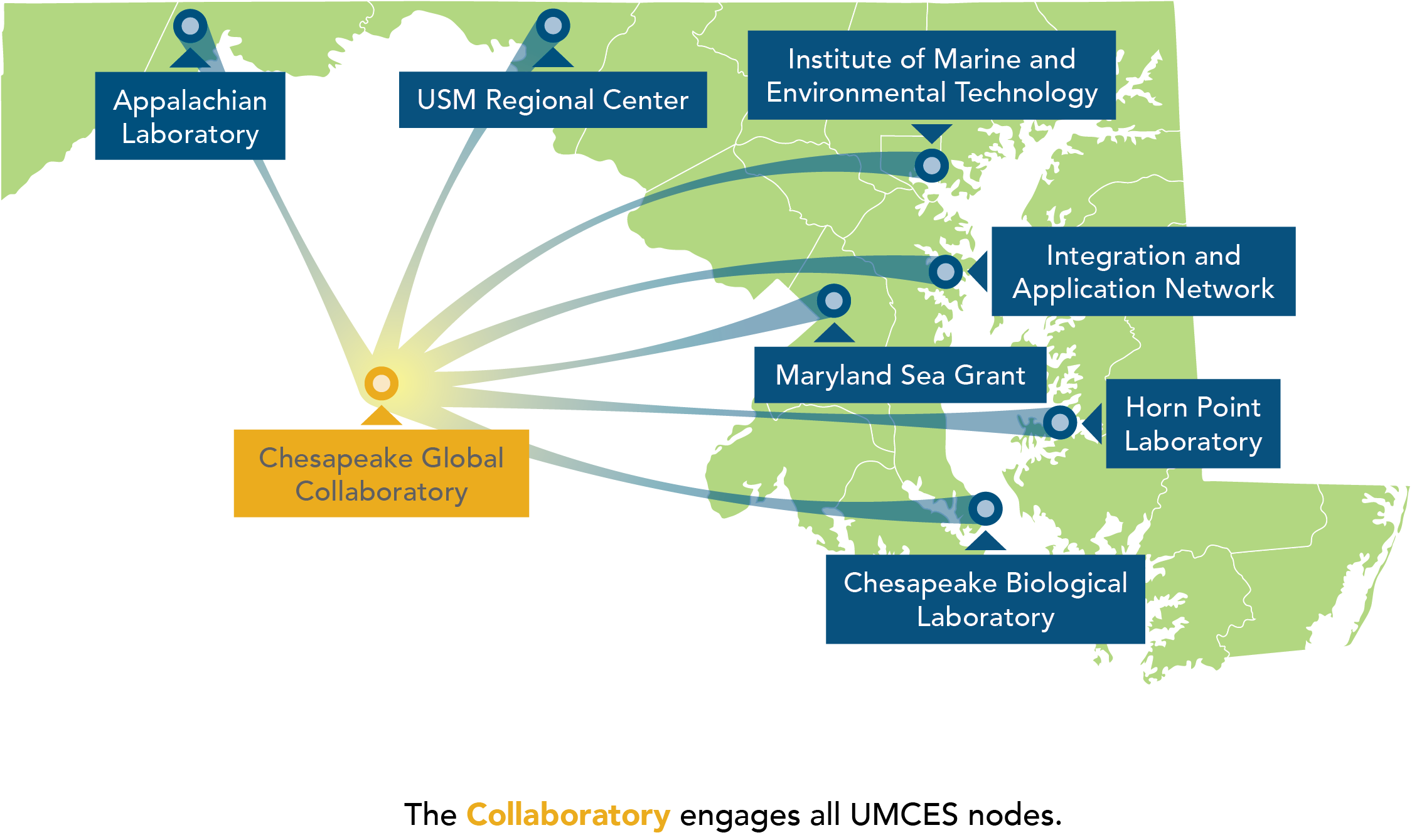
What is the collaboratory?
The UMCES Collaboratory is a hub for producing science-based solutions through shared data, tools, and expertise. The ‘collaboratory’ concept emerged during the 1990’s, when internet resources became commonplace. Described as "a center without walls, in which the nation's researchers can perform their research without regard to physical location," the collaboratory approach enabled data sharing and collaboration via virtual interaction (Wulf, W.A., 1993. Science, vol. 261, no. 5123).
Today, the UMCES Collaboratory combines the expertise of environmental researchers, data scientists, social scientists, and communications specialists from UMCES units across the state of Maryland, generating powerful, interdisciplinary research and data analytics capabilities. We also leverage state-of-the-art spaces to facilitate in-person and hybrid engagements.

How we work.
Our approach acknowledges that solving complex environmental problems rarely occurs through science alone. Resolving modern environmental challenges requires inputs from many different sectors of society, including public institutions, private firms, policy makers, and scientists. We pull together multi-faceted teams to address problems collaboratively, and we accelerate the work by leveraging UMCES expertise in big data, artificial intelligence, machine learning, supercomputing, stakeholder engagement, and facilitation.
What we do.
Our emphasis is in three key areas:



Research & Technical Applications: Our Researchers develop cutting-edge environmental projects with our partners and use big data analytics to tackle complicated environmental issues. Our Strengthening the Cyber Infrastructure Professionals Ecosystem (SCIPE) team of data scientists and Research Facilitators help others leverage high-performance and cloud computing, open data science, and geospatial analytics. Our Science Communicators help translate the findings, to improve their adoption across all sectors.
Meet our new Coordinator!
Dr. Clarissa Mathews joined UMCES in September. A champion of environmental education and sustainability for more than two decades, she has taught Environmental Science at the undergraduate level, chaired a university department, and managed post-baccalaureate training in Ecology and Data Sciences for conservation professionals working in government, the private sector, and NGOs. She is passionate about finding solutions to big environmental issues.
